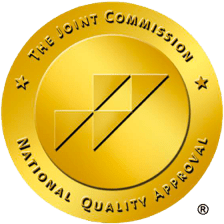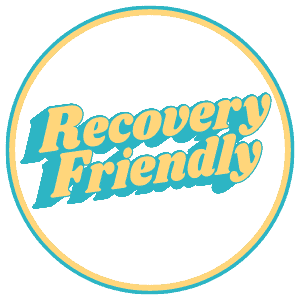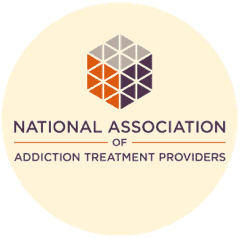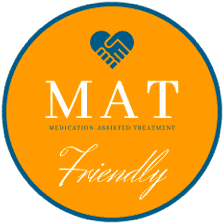Many people addicted to substances don’t realize what long-term damage they are doing to their bodies. They may have experienced some short-term consequences (like trips to the hospital) but that may not be enough to deter the behavior. A lot of patients don’t realize the long-term damage they are doing to their bodies until it is too late.
Drugs and alcohol can do long-term, irreparable damage. The good news is—for many patients—it’s not too late. The progression can be halted. Even if some long-term effects have begun, they can at least be slowed and stopped.
Below is more information about the long-term effects of drug abuse, as well as the treatment offered by Next Step Recovery. Once you’ve made the decision to seek help, reach out to Next Step Recovery. We are here to support you and provide you with relief.
The Long-term Effects of Drug Abuse
The long-term effects of drug abuse will depend on a few factors. These include the length of use, the intensity of use, drug of choice, individual biology, and other factors. With that said, there are some long-term effects you’ll want to consider. With this information, you can better make the decision of whether you would like to continue with use or seek treatment.
Below are some long-term effects of drug abuse:
- Liver damage
- Kidney damage
- Brain damage
- Respiratory issues
- Cardiovascular problems
- Gastrointestinal issues
- Impaired cognitive functions
- Brain cell death
- Worsening of mental health disorders
Then there is death. Over a long period of time, many chronic drug and alcohol abusers will pass away. This may be due to overdose, or damage to the body that leads to stroke, heart failure, liver failure, and more. Even if an individual doesn’t die, they can experience a significantly lower quality of life.
While you may not be experiencing the issues listed above yet, there is the possibility of these problems occurring in the future. To avoid these life-threatening problems, seek help for your substance abuse issues.
Intensive Outpatient Drug Treatment
Once you have decided to seek treatment, you’ll need to consider what form of treatment is best for your needs. If you have outside obligations like work or family and require a lower level of care, IOP (Intensive Outpatient) may be the best option to meet your needs. The IOP program at Next Step Recovery is 12 weeks long and involves the patient visiting the facility 3-5 days a week for a few hours at a time. After treatment, they are able to return home. This allows for more flexibility.
The IOP program at Next Step Recovery involves the patient learning practical skills, while also receiving therapy. Patients learn to better address their triggers and cravings and receive group therapy, individual therapy, DBT (Dialectical Behavioral Therapy), CBT (Cognitive Behavioral Therapy), and more. The goal is to provide our patients with everything they need to succeed both during their time at our facility and after they’ve graduated.
Wilderness Adventure Therapy
An exciting therapy offered by Next Step Recovery is our Wilderness Adventure Therapy. This form of therapy allows our patients to get some exercise, connect with nature, build bonds with other members of the program, and have a ton of fun! A major concern for patients is how they will have a good time without the help of drugs and/or alcohol. Our Wilderness Adventure Therapy program shows patients that they can have a good time without the help of a drink or drug.
Some of the fun activities we offer our patients include:
- Hiking
- Watersports
- Paintball
- High Rope Courses
- And More
Along with the ability to enjoy the beauty around them and have a good time, patients learn important skills like mindfulness, discipline, teamwork, and more. We believe strongly in patients building a community for their ongoing success. Our Wilderness Adventure Therapy program encourages patients to build lifelong bonds of brotherhood that last far beyond graduation from our IOP program.
Exercise Therapy
Exercise is important both for the body and the mind. It is extremely therapeutic. Our exercise therapy program is designed to relieve stress, improve health, and encourage mindfulness. We offer martial arts, yoga, meditation, and more. It is our goal for our patients to feel a sense of accomplishment and empowerment. Exercises like BJJ also help patients to connect with each other and create bonds.
12-Step Programs
12-step programs provide patients with the tools they need to create long-term sobriety. They are also great for community-building. We highly encourage our patients to work a 12-step program both while they are in IOP and once they graduate from the program.
12-step programs do not need to be religious in nature. Members are allowed to decide on their own “higher power,” and it can be anything that they’d like (as long as it is a power greater than themselves). There is no need to worry if you aren’t religious!
With the tools you learn at Next Step Recovery and the skills you learn through 12-step work, you’ll have a much greater chance of long-term sobriety.
Why Next Step Recovery?
There are a variety of different rehabilitation centers to choose from. So, why Next Step Recovery?
- Our Code of Ethics. Our Code of Ethics is extremely important to us. We believe in respect, professionalism, and advocacy for our patients. It is our goal for you to feel heard, safe, and seen.
- Male-Focused Treatment. Men have individual recovery needs. Our program is designed to meet those specific needs.
- Structure. Structure provides a sense of peace and calm. The program at Next Step Recovery provides structure for our patients.
- Multiple Methods of Healing. Addiction takes many forms. Because of this, we provide multiple methods of healing.
- Community. It’s much easier to get and stay sober when you are part of a community. We encourage brotherhood and bond-building.
Contact Us Today!
If you have any questions and/or would like to sign up for our IOP program, reach out to Next Step Recovery today!









